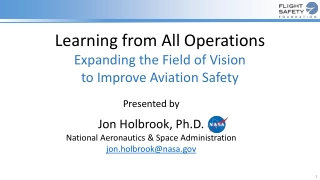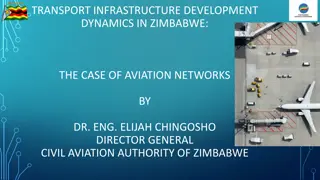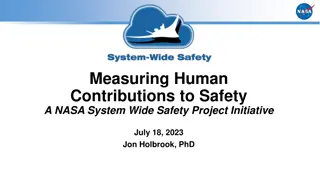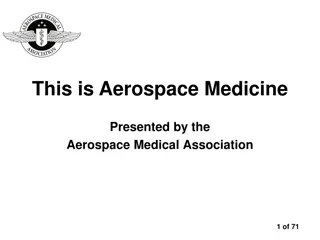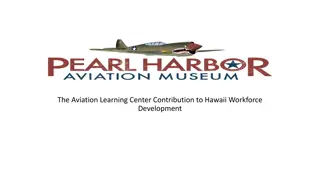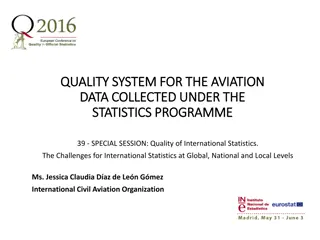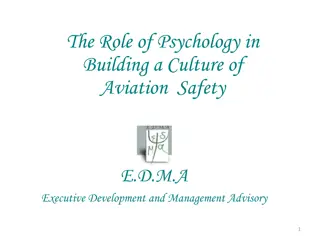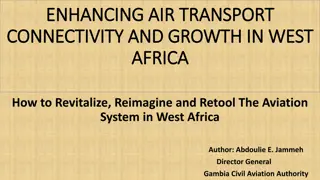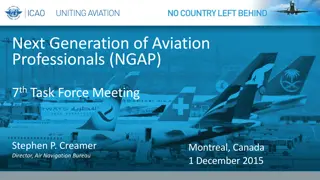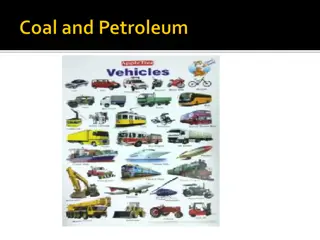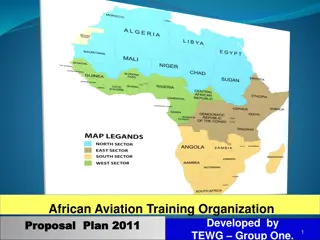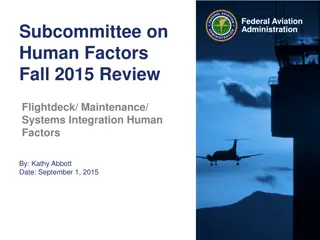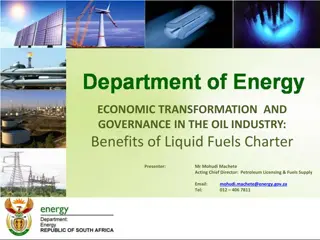Bunker Fuel Market
Bunker fuel is a fuel oil used in marine vessels. It is poured into the ship bunkers to keep the engines running. Ships use three types of marine fuels, which include high sulfur fuel oil, low sulfur fuel oil, and diesel oil. Presently, growth in awareness toward reducing environmental pollution and
2 views • 6 slides
Bunker Fuel Market
Bunker fuel is a fuel oil used in marine vessels. It is poured into the ship bunkers to keep the engines running. Ships use three types of marine fuels, which include high sulfur fuel oil, low sulfur fuel oil, and diesel oil. Presently, growth in awareness toward reducing environmental pollution and
1 views • 6 slides
Bunker Fuel Market
Bunker fuel is a fuel oil used in marine vessels. It is poured into the ship bunkers to keep the engines running. Ships use three types of marine fuels, which include high sulfur fuel oil, low sulfur fuel oil, and diesel oil. Presently, growth in awareness toward reducing environmental pollution and
6 views • 6 slides
Enhancing Aviation Safety Through Broadened Operational Insights
Explore innovative strategies to enhance aviation safety through a widened scope of operational perspectives. Gain insights from expert Dr. Jon Holbrook of NASA on expanding the field of vision in aviation. Popular
1 views • 15 slides
South Sudan Civil Aviation Authority Overview
South Sudan Civil Aviation Authority (SSCAA) was established in 2012 to regulate the aviation industry in South Sudan. As a member of ICAO, SSCAA aims to provide efficient, safe, secure, reliable, and affordable aviation infrastructure and services. Challenges include financial autonomy and meeting
2 views • 10 slides
Development Dynamics of Aviation Networks in Zimbabwe
Aviation plays a crucial role in Zimbabwe's economic growth, with the government focusing on infrastructure development to position the country as a regional aviation hub by 2030. Initiatives include strengthening civil aviation systems, enhancing airport infrastructure, and prioritizing safety and
3 views • 15 slides
NEAT: Nexgen ERAM Adaptation Tool for Federal Aviation Administration
NEAT, the Nexgen ERAM Adaptation Tool, is a versatile application by the Federal Aviation Administration for viewing, manipulating, and exporting aviation data. It allows users to manage grids, filter data, and access various files including NFDC Subscriber files and Canadian AIXM data. The tool fac
3 views • 36 slides
The Importance of Safety Expertise in Aviation Engineering
Safety expertise plays a crucial role in aviation engineering to prevent catastrophic failures. Dr. Mallory Suzanne Graydon from NASA Langley Research Center emphasizes the significance of historical aviation safety incidents, the need for redundancy in parts, and the importance of safety analyses l
6 views • 18 slides
Enhancing Aviation Safety Through Human Contributions
The NASA System Wide Safety Project Initiative focuses on transforming aviation through new technologies and policies to enhance safety. The Human Contributions to Safety (HC2S) Initiative highlights the vital role of people in maintaining aviation safety. Despite human error being a factor in many
0 views • 25 slides
Fuels and Combustion in Mechanical Engineering
This content delves into the intricate world of fuels and combustion, discussing classifications, properties, and origins of various fuels such as solid, liquid, and gaseous. It covers the importance of desirable fuel properties, caloric values, and the different types of natural and artificial fuel
0 views • 34 slides
Impact of Federal Policies on the Aviation Industry During COVID-19
Analysis of COVID-19 policy effects on the aviation industry, including passenger demand changes, regulatory flexibilities, financial support provided, and implications of various governmental actions. Data presented includes shifts in passenger and freight traffic, regulatory actions by the FAA, an
0 views • 11 slides
Innovative Fuel Technology by Cynar PLC: Converting Plastic Waste into Sustainable Fuels
Cynar PLC pioneers technology converting end-of-life plastics into synthetic liquid fuels, reducing landfill waste and greenhouse gas emissions. Seeking partners for future fuel development and renewable energy projects. Advanced discussions with potential collaborators. Opportunities to combine alt
0 views • 5 slides
Enhancing Aviation Instruction for Optimal Learning
Explore key areas of adding value to aviation instruction, from theory into practice and maximizing transit time, to debriefing and threat recognition. Discover the importance of lesson planning, practical relevance, airspace management, and effective debriefing techniques. Enhance your teaching app
0 views • 12 slides
CNS Inspectors Training and Responsibilities in Civil Aviation Safety Oversight
In this chapter, the focus is on the training, qualifications, duties, and responsibilities of CNS inspectors in civil aviation safety oversight. It covers the importance of education and training, ICAO guidance on training, and the role of Civil Aviation Safety Inspectors (CASI) as qualified indivi
1 views • 47 slides
Aerospace Medicine Overview - Insights into Flight and Space Health
Explore Aerospace Medicine, a specialized field addressing the healthcare needs of individuals in aviation, sea, and space environments. Learn about its unique history, practitioners, and roles in ensuring the well-being and safety of aviation and space personnel worldwide. Dive into topics such as
1 views • 71 slides
Performance Based Navigation (PBN) Benefits for General Aviation
Performance Based Navigation (PBN) offers significant benefits for General Aviation, enhancing operational efficiency, route options, and airspace capacity. Through RNAV and RNP specifications, PBN provides improved on-board alerting and monitoring, potentially reducing reliance on ground-based nava
8 views • 13 slides
Fuels and Their Classification
Fuels are combustible substances that serve as a source of heat or raw material for various industries. They can be classified as natural or artificial, solid, liquid, or gaseous, and primary or secondary fuels. Primary fuels like coal and wood are directly used for heat, while secondary fuels are m
5 views • 88 slides
Helicopter Summit 2019: Enhancing Connectivity and MRO Development in India
Global aviation industry is experiencing unprecedented growth with increasing air travel demand and rising incomes. India is emerging as a key aviation market, poised for significant expansion. The summit focuses on addressing challenges and constraints faced by the Indian aviation sector to foster
0 views • 31 slides
The Aviation Learning Center: Empowering Hawaii's Workforce
The Aviation Learning Center (ALC) at the Pearl Harbor Aviation Museum offers an immersive hands-on learning experience for students of various age groups, focusing on aviation concepts and practical applications. The program includes educational modules, flight simulators, and a curriculum aligned
0 views • 7 slides
Careers in Aviation Management
Aviation management involves overseeing flight operations and preparing students for professional positions in the aviation industry. Success in this field requires adaptability, communication, critical thinking, problem-solving, teamwork, and the ability to work under pressure. Sample roles include
0 views • 8 slides
Transition of Legacy CONUS Area Forecasts in Aviation Weather Modernization
On June 15, 2017, the National Weather Service announced a transition plan to retire legacy CONUS Area Forecasts (FAs) and adopt improved aviation weather products and services. The transition period will last three months, with full implementation expected by October 10, 2017. The goal is to enhanc
5 views • 9 slides
Quality System for the Aviation Data in ICAO
International Civil Aviation Organization (ICAO) is responsible for collecting, analyzing, and disseminating statistics related to civil aviation. The quality system for aviation data ensures relevance, accuracy, timeliness, accessibility, comparability, and coherence of the collected data. ICAO's s
0 views • 7 slides
The Role of Psychology in Aviation Safety Culture
Psychology plays a crucial role in building a culture of aviation safety by studying and preempting the psychological stressors faced by aviation staff. Aviation psychology focuses on human behaviors, cognitive functioning, and emotional processes in the complex aviation environment, with a history
0 views • 24 slides
Role of Aviation in Tourism Liberalisation and Development
Explore the significance of aviation in tourism liberalisation through insights on the International Transport Forum, tourism impact on GDP, employment, and exports, tourists' preferences for freedom in air travel, and a comparison of aviation with other tourism services. The content delves into the
0 views • 12 slides
Advances in Aviation Fuel Surrogates and Computational Modeling
This study explores the formulation of petroleum and alternative jet fuel surrogates, coupling chemical kinetics with computational fluid mechanics for engine design, and the variability of aviation fuels. It delves into the concept of surrogate fuel models, previous research on jet fuel surrogates,
0 views • 20 slides
Enhancing Air Transport Connectivity and Growth in West Africa: Strategies for Revitalizing the Aviation System
Abdoulie E. Jammeh, Director General of Gambia Civil Aviation Authority, discusses the pre-COVID-19 achievements in the aviation sector in West Africa and the current/future challenges faced due to the pandemic. The article emphasizes on revitalizing, reimagining, and retooling the aviation system b
0 views • 6 slides
Enhancing Aviation Career Opportunities in Singapore
Promoting aviation careers in Singapore is a priority for the Civil Aviation Authority of Singapore (CAAS) under the SkillsFuture initiative. The Sectoral Manpower Plan aims to uplift the quality of manpower in the aviation industry by addressing challenges such as attracting local talent, providing
0 views • 21 slides
World Bank Support for Pacific Aviation Development
The World Bank has been actively involved in providing financial support for aviation development projects, particularly in the Pacific region. Through initiatives like the Pacific Aviation Investment Program and support for the Pacific Aviation Safety Office, the World Bank aims to enhance infrastr
0 views • 16 slides
Next Generation of Aviation Professionals (NGAP) Task Force Meeting Overview
The Next Generation of Aviation Professionals (NGAP) Task Force meeting was held on December 1, 2015, in Montreal, Canada. The NGAP aims to develop strategies for attracting, training, and retaining aviation professionals to ensure a safe and sustainable global air transportation system. The Task Fo
0 views • 24 slides
Fuels and Their Uses
Fuels are substances that release energy when burned, such as coal, petroleum, and natural gas. They are used in transportation, cooking, heating, electricity production, and industrial processes. Good fuel characteristics include being economical, easily available, non-toxic when burned, high heat
0 views • 9 slides
Proposal for the Creation of African Aviation Training Organization (AATO)
The proposal outlines the development of AATO, a continental body aimed at standardizing and harmonizing aviation training in Africa. Four Regional Aviation Training Boards will collaborate with ICAO to enhance accreditation and training quality across the continent, addressing common challenges fac
1 views • 23 slides
Satellite Products for Aviation Remote Sensing Needs in High Latitudes
Addressing the specific needs of aviation remote sensing in high latitudes, this content explores the importance of satellite products, variations in equipment requirements, data expectations, and the significance of cloud products for aviation safety. Feedback from aircraft operators emphasizes the
0 views • 8 slides
Fossils and Fossil Fuels
Explore the world of fossils and fossil fuels, learning how they are formed and what they reveal about Earth's history. Discover the various types of fossils, from imprints to whole organisms preserved in amber. Uncover the importance of fossils in studying geological changes over time and understan
0 views • 15 slides
Federal Aviation Administration Subcommittee on Human Factors Fall 2015 Review
This document discusses the review of flight deck and maintenance systems integration human factors by Kathy Abbott in September 2015. It outlines the purpose, benefits, and success factors of the BLI Portfolio Overview related to human factors in aviation operations. Furthermore, it presents core f
0 views • 10 slides
Economic Transformation in Oil Industry: Benefits of Liquid Fuels Charter
Presentation by Mr. Mohudi Machete on the Petroleum Licensing & Fuels Supply, discussing the legislative mandate, objectives, and impact analysis of the Petroleum and Liquid Fuels Charter (LFC) in the South African oil industry.
0 views • 18 slides
Challenges and Strategies in Finnish Aviation Industry
The Finnish aviation industry faces challenges in general and business aviation, with rising costs, older pilot demographics, and declining interest among the youth. ALMT Oy discusses survival strategies and adaptation measures at the Estonian Aviation Academy seminar.
0 views • 11 slides
Fossil Fuels: Advantages, Disadvantages, and Impact
Fossil fuels like oil, coal, and natural gas have both advantages and disadvantages. They offer cheap energy with a high power output but contribute to pollution and are non-renewable. The method of processing fossil fuels in power plants is explained, highlighting their impact on the environment an
0 views • 11 slides
Progress in Replacing Halons in Civil Aviation: ICAO Initiatives
In the journey to replace halons in civil aviation, the International Civil Aviation Organization (ICAO) has made significant strides with the Halons Technical Options Committee. Starting from the engagement in 2003 to the establishment of mandates in 2010, various decisions and agreements have shap
0 views • 9 slides
Strategies for Decarbonizing Shipping Industry
Infographic series released under CC-BY-NC-ND licensing by UMAS highlight the pathways for reducing greenhouse gas emissions in international shipping. Efficiency measures and transition to renewable energy and zero-carbon fuels are essential to meet the IMO's emission reduction targets. The use of
0 views • 8 slides
Challenges and Future of Fossil Fuels in the Global Economy
The world's dependence on fossil fuels is declining, as evidenced by recent actions from major financial institutions and companies shifting away from investments in coal, oil sands, and Arctic drilling. Experts suggest that businesses adapting to a net-zero carbon world will thrive while those resi
0 views • 13 slides



